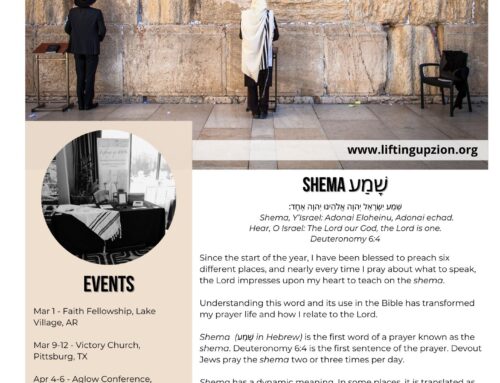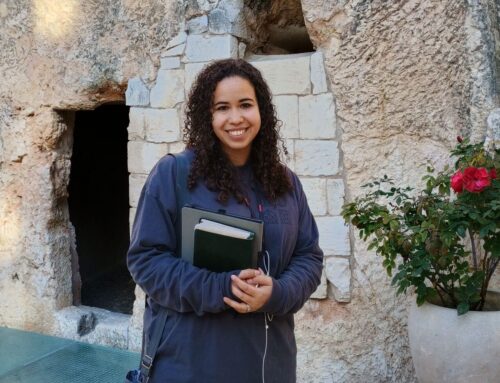The Hebrews had spent forty years wandering in the desert and were ready to finally enter the land that God had promised to their ancestor Abraham.
Joshua, the successor of Moses, took charge and prepared to lead the people of God into the Promised Land.
He sent two spies and said to them, “Go, view the land, especially Jericho” (Josh. 2:1). The men went to spy out the land and ended up in the house of a prostitute named Rahab.
The king of Jericho heard that men of Israel were searching out the land, so he ordered Rahab to turn them in. Rahab, a gentile woman, hid the Hebrew spies.
She perceived that the Lord was with them and was going to give the land to them. So, she protected them and asked for a favor in return. She said:
Now then, please swear to me by the Lord that, as I have dealt kindly with you, you also will deal kindly with my father’s house, and give me a sure sign that you will save alive my father and mother, my brothers and sisters, and all who belong to them, and deliver our lives from death. Joshua 2:12-13 ESV
The spies agreed that as long as she protected them, they would protect Rahab and her family.
Later in the story, when the Israelites marched around the great city of Jericho for seven days and the walls fell down, the two spies went to Rahab’s house and brought her and all who were with her out and saved their lives from death.
Scripture says it this way:
But Rahab the prostitute and her father’s household and all who belonged to her, Joshua saved alive. And she has lived in Israel to this day, because she hid the messengers whom Joshua sent to spy out Jericho.
Joshua 6:25
Rahab, a gentile woman, and a prostitute, was friendly to the Hebrew spies that everyone else dreaded and feared. Her response to the Israelites was counter cultural as a resident of Jericho, but it resulted in the saving of her life and the lives of all her family members.
Rahab is mentioned multiple times in New Testament texts as well. James, the brother of Jesus and Pastor of the first century Jerusalem church writes:
You see that a person is justified by works and not by faith alone. And in the same way was not also Rahab the prostitute justified by works when she received the messengers and sent them out by another way? For as the body apart from the spirit is dead, so also faith apart from works is dead.
James 2:24-26
Rahab is mentioned as an example of faith right after Abraham in James’s writing. How does a gentile prostitute woman of poor reputation come to be named in the Scriptures as a woman of faith?
By treating the Hebrew people well.
Interestingly, another New Testament writer mentions Rahab in the context of faith. In Hebrews 11, what many call the Bible’s Great Hall of Faith, the writer says:
By faith Rahab the prostitute did not perish with those who were disobedient, because she had given a friendly welcome to the spies.
Hebrews 11:31
Rahab is remembered as a woman of faith alongside Israel’s greatest heroes like Abraham, Isaac, Jacob, Moses, Samuel, David, and many more.
And actually, there is one other New Testament mention of Rahab. In Matthew 1, we read:
and Salmon the father of Boaz by Rahab, and Boaz the father of Obed by Ruth, and Obed the father of Jesse, 6 and Jesse the father of David the king.
Matthew 1:5-6
Rahab is mentioned in the opening verses of Matthew as one of four women named in the genealogy of Jesus.
Rahab not only received the salvation of her family members from death, but is recorded as an example of faith, and is listed in the genealogy of Jesus. Because when Jews and gentiles come together, the plan of God is set in motion.






